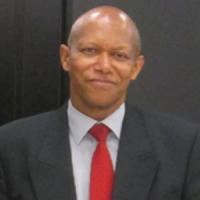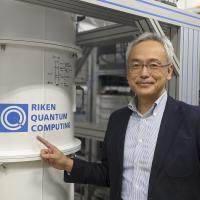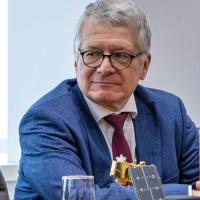A private Science|Business online expert roundtable (15:30 – 17:00 CET)
Who needs a quantum computer? Arguably, nobody does – unless someone else has got one. Driven by the promise of a new technology that could benefit all of society, but also the fear of falling behind strategic rivals, nations around the world are investing heavily in the field. When it comes to quantum tech, no-one wants to miss out – and that desire is triggering a kind of global arms race.
Across Europe, quantum’s importance has been underlined by a recent wave of new initiatives and spending pledges by member-states – not to mention the tensions over access to the EU’s future R&D programmes, and related delays to Horizon Europe. What is clear, however, is that the EU is trying to move fast to try and develop its capabilities – through the Quantum Flagship Project, Digital Europe and more – as other leading R&D nations scale up their own investments.
All of which raises a number of vital questions for policy makers, companies and researchers to answer going forward: why has quantum become such a sensitive political area, when cross-border cooperation with allies and neighbours has long existed? What are the areas that Europe should prioritise to build a world-leading technology and science base, and how might that be achieved? Can a strong pan-EU quantum network be built around multiple national initiatives? And with whom should Europe be pursuing international alliances to achieve its strategic goals?
On July 6, the Science|Business Network will convene influential voices and experts from across the quantum tech spectrum to debate these issues and explore the ways forward.



















MEETING Agenda
15:30 – Welcome & introduction
Opening remarks from Maryline Fiaschi, Managing Director, Science|Business
15:35 – Raised stakes: Why is it so hard to align policy and politics in quantum tech?
A discussion seeking to understand why quantum research and development has drawn so much attention in recent months – becoming a lightning rod in the “strategic autonomy” debate, delaying the launch of Horizon Europe, and affecting the association of third countries to the programme. How does the EU’s approach stand up in relation to other quantum programmes around the world, including its own member states? How open are they? What does this mean in terms of cross-border collaboration for quantum companies, institutes and scientists? Which safeguards could underpin a future framework for international collaboration to enhance quantum innovation, away from politics?
With introductory remarks by:
- Pascal Maillot, Deputy Head of Unit, High Performance Computing and Quantum Technology, DG CONNECT, European Commission
- Peter Knight, Chair, UK National Quantum Technology Programme Strategic Advisory Board, UKRI
- Daniel Adams, Chief Director, Basic Sciences and Infrastructure, Department of Science and Innovation, Government of South Africa
16:15 – Game changer: Is the world prepared for a quantum future?
A technology-oriented discussion around the next breakthroughs in quantum research, their prospective impact on economies and societies, and the biggest challenges (e.g., cryptography) to be resolved for Europe and the world to be “quantum ready”. Is a marriage between high performance computing and quantum computing possible? From an operations point of view, what should be the priority investment areas? What is required to democratise access to the technology so that it does not remain the property of tech giants? And finally, is Europe already lagging behind in the quantum global race?
With introductory remarks from:
- A lab perspective: Yasunobu Nakamura, Director, Centre for Quantum Computing, RIKEN Institute (Japan)
- A company perspective: Inés de Vega, Head of Quantum Innovation, IQM Finland
- A network perspective: Bram Peeters, Chief Network Operations Officer, GEANT
17:00 – Close of event
For more information on this event, please contact Sara Crepaldi at [email protected]
Partners


 A unique international forum for public research organisations and companies to connect their external engagement with strategic interests around their R&D system.
A unique international forum for public research organisations and companies to connect their external engagement with strategic interests around their R&D system.